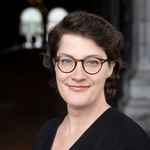Amsterdam Centre for Studies in Early Modernity: broad outlook on the seventeenth century
2 February 2022
The Amsterdam Centre for Studies in Early Modernity stemmed from the Amsterdam Centre for the Study of the Golden Age and is lead by art historian Judith Noorman. She explains that the term ‘Golden Age’ has become discredited in recent times.
The Golden Age outgrown
‘It is not the case that people say: it’s wrong, you’re not allowed to use it anymore, it’s over’, says Noorman. ‘Such a development occurs very gradually, both in society and academia.’

Are there any people at all with an impeccable reputation in the 17th century? By present-day standards, there aren’t actually.Judith Noorman
‘The term is problematic, also because it now evokes a different association among people. The term is increasingly associated with an ode to the 17th century and glossing over inequality’, she explains. ‘It is also not in keeping with the research that we conduct, because we don’t only research the golden side of that time. At the UvA, research is also conducted, for example, into immigration, slavery and gender in the 17th century. ‘The Golden Age’ only tells part of the story; our interdisciplinary research covers a much broader area. We have simply outgrown the term ‘Golden Age’.’
Neutral term
The new name is straightforward: Amsterdam Centre for Studies in Early Modernity. ‘We had our doubts about that for some time’, says Noorman. ‘We first thought about naming the centre after someone. However, should that be a man or a woman? And are there any people at all with an impeccable reputation in the 17th century? By present-day standards, there aren’t actually.’
‘You soon find yourself in a kind of cul-de-sac this way. We have now chosen to use a neutral term, which also gives us greater freedom to make excursions into the 16th and 18th centuries and other regions.’
Object Colloquium lectures
Information can be found on the centre’s website about the specialists who are affiliated with the centre and what they do. Along with the change of name, a new series of lectures has also been set up. In the Object Colloquium series, researchers analyse individual objects in order to reexamine and discuss early modern history.
‘Each lecture has an object or product as starting point, such as cheese, blue paper or shells. We do that in order to jointly explore early modern history once again with a new outlook.’